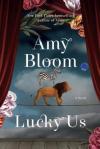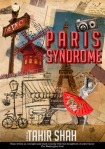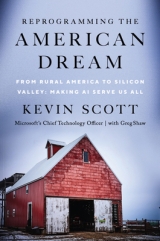 The Chief Technology Officer of Microsoft presents his take on the future of artificial intelligence, with a focus on what it could mean in particular for those who live outside of densely-populated urban areas. Hailing from rural Virginia himself, Scott returns to his hometown and others like it to determine what impact AI is already having in these communities, and what steps could be taken to prevent them from being left out as AI becomes ever more important to the US economy.
The Chief Technology Officer of Microsoft presents his take on the future of artificial intelligence, with a focus on what it could mean in particular for those who live outside of densely-populated urban areas. Hailing from rural Virginia himself, Scott returns to his hometown and others like it to determine what impact AI is already having in these communities, and what steps could be taken to prevent them from being left out as AI becomes ever more important to the US economy.
In the past year or so I’ve read a number of books about artificial intelligence. Most are not very memorable. Others I still think about at least once a week. If you trust Elon Musk and Stephen Hawking (and who doesn’t?), AI is definitely going to be the end of us all. However, Kevin Scott is not in the camp that believes that AI is going to take over the world and destroy humanity. This may be one of the few things he and I agree on.
Scott makes a strong attempt to portray himself as the everyman, but I am simply not convinced. Although he grew up with modest means, he is clearly far removed from them now. Several times in his book he addresses the need for more government investment in AI research, government investment in tech job creation, and even matching government donations for “approved charities” in the field of AI. The most laughable suggestion is for an Apollo-level AI program. And Scott makes all of these proposals while also suggesting that the American government should cut taxes for investment outside of urban opportunity zones. There is no mention of those same businesses returning the favor after making a fortune on government-funded research and development.
While reading this book, I struggled with what kind of review I wanted to write. Is my job to review the writing of the book and determine if the author fulfilled his proposed purpose? Or is it legitimate for me to focus my review more on addressing inconsistencies in policy proposals? Although I did find it interesting to learn about the particular challenges surrounding artificial intelligence for those living in rural communities, I found it hard to focus in light of everything I took issue with.
TL;DR: If you’re looking for an insightful and thought-provoking book about what AI may mean for the the future of humankind, I propose turning to The Fourth Age instead.
![]()
Find it on Goodreads.
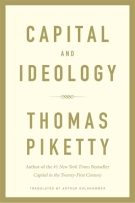 Five years after Capital in the Twenty-First Century dominated bestseller lists, Thomas Piketty returns with a worthy follow-up. His research spans centuries of inequality regimes, tracing where we came from in order to gather some idea of where we may heading. The book is a history of egalitarianism and the lack thereof, slavery, communism, capitalism, and everything in between.
Five years after Capital in the Twenty-First Century dominated bestseller lists, Thomas Piketty returns with a worthy follow-up. His research spans centuries of inequality regimes, tracing where we came from in order to gather some idea of where we may heading. The book is a history of egalitarianism and the lack thereof, slavery, communism, capitalism, and everything in between.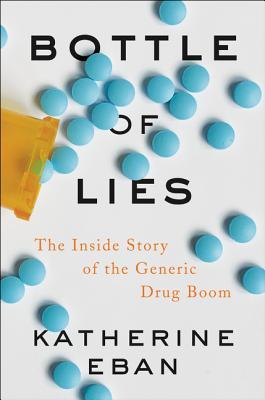 At the risk of sounding hyperbolic, I have to say that Bottle of Lies may be the best book I have read in years. Investigative journalist Katherine Eban draws on approximately a decade of research in order to uncover a story that is simultaneously devastating, nauseating, and thrilling. Through this research, she has uncovered an unfathomably large web of fraud, corruption, and incompetency inhabiting the world of generic drug manufacturing. The book focuses on one pharmaceutical company in particular, the Ranbaxy company of India.
At the risk of sounding hyperbolic, I have to say that Bottle of Lies may be the best book I have read in years. Investigative journalist Katherine Eban draws on approximately a decade of research in order to uncover a story that is simultaneously devastating, nauseating, and thrilling. Through this research, she has uncovered an unfathomably large web of fraud, corruption, and incompetency inhabiting the world of generic drug manufacturing. The book focuses on one pharmaceutical company in particular, the Ranbaxy company of India.
